After many emails about predatory journals and conferences, today I received an email about a predatory academic prize. Over the years there have been many BU Research Blogs warning readers about predatory journals, for example in 2014, 2015, 2018, and in 2019, and also about fake conferences (e.g. in 2017). It was inevitable that fake academic prizes would be the next trick. The email announces that for US$ 225 the prize is mine! This development fits in with the many messages I have received about having ‘won’ prizes on platforms such as Facebook and Twitter. 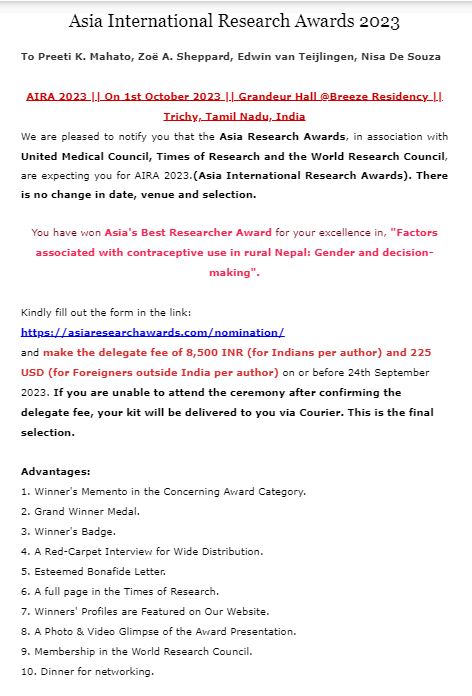
Today’s predatory prize announcement is still very much in its infancy as scammers from the ‘Asia International Research Award 2023’ did not pick the greatest paper written in 2020 by the first author Dr Preeti Mahato, formerly in BU’s Faculty of Health & Social Sciences, and now Lecturer in Global Health at Royal Holloway , University of London. If they had wanted to make the award scam more believable they would have chosen the PloS one paper from her BU PhD work in Nepal [1]. Instead the announcement list a paper with much older data based on secondary analysis [2], not a bad paper, but not a winner either.
Prof. Edwin van Teijlingen

References
- Mahato, P., van Teijlingen, E., Simkhada, P., Angell, C., & Hundley, V. (2020). Evaluation of a health promotion intervention associated with birthing centres in rural Nepal. PloS one, 15(5), e0233607.
- Mahato, P. K., Sheppard, Z. A., van Teijlingen, E., & De Souza, N. (2020). Factors associated with contraceptive use in rural Nepal: Gender and decision-making. Sexual & Reproductive Healthcare, 24, 100507.
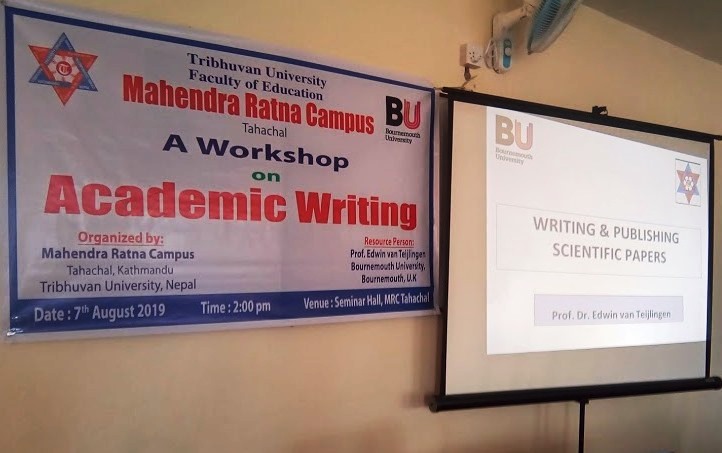


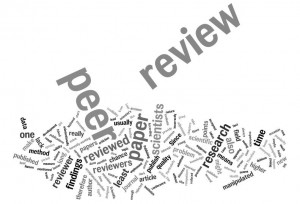
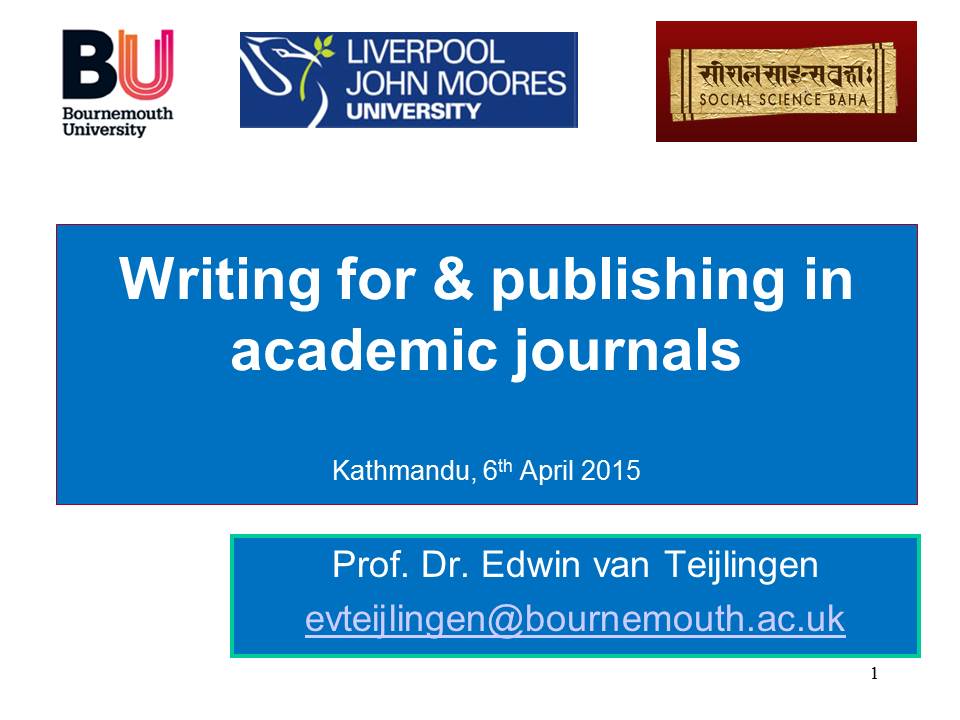


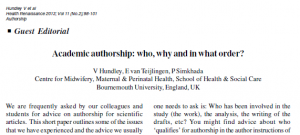











 REF Code of Practice consultation is open!
REF Code of Practice consultation is open! BU Leads AI-Driven Work Package in EU Horizon SUSHEAS Project
BU Leads AI-Driven Work Package in EU Horizon SUSHEAS Project Evidence Synthesis Centre open at Kathmandu University
Evidence Synthesis Centre open at Kathmandu University Expand Your Impact: Collaboration and Networking Workshops for Researchers
Expand Your Impact: Collaboration and Networking Workshops for Researchers ECR Funding Open Call: Research Culture & Community Grant – Apply now
ECR Funding Open Call: Research Culture & Community Grant – Apply now ECR Funding Open Call: Research Culture & Community Grant – Application Deadline Friday 12 December
ECR Funding Open Call: Research Culture & Community Grant – Application Deadline Friday 12 December MSCA Postdoctoral Fellowships 2025 Call
MSCA Postdoctoral Fellowships 2025 Call ERC Advanced Grant 2025 Webinar
ERC Advanced Grant 2025 Webinar Update on UKRO services
Update on UKRO services European research project exploring use of ‘virtual twins’ to better manage metabolic associated fatty liver disease
European research project exploring use of ‘virtual twins’ to better manage metabolic associated fatty liver disease